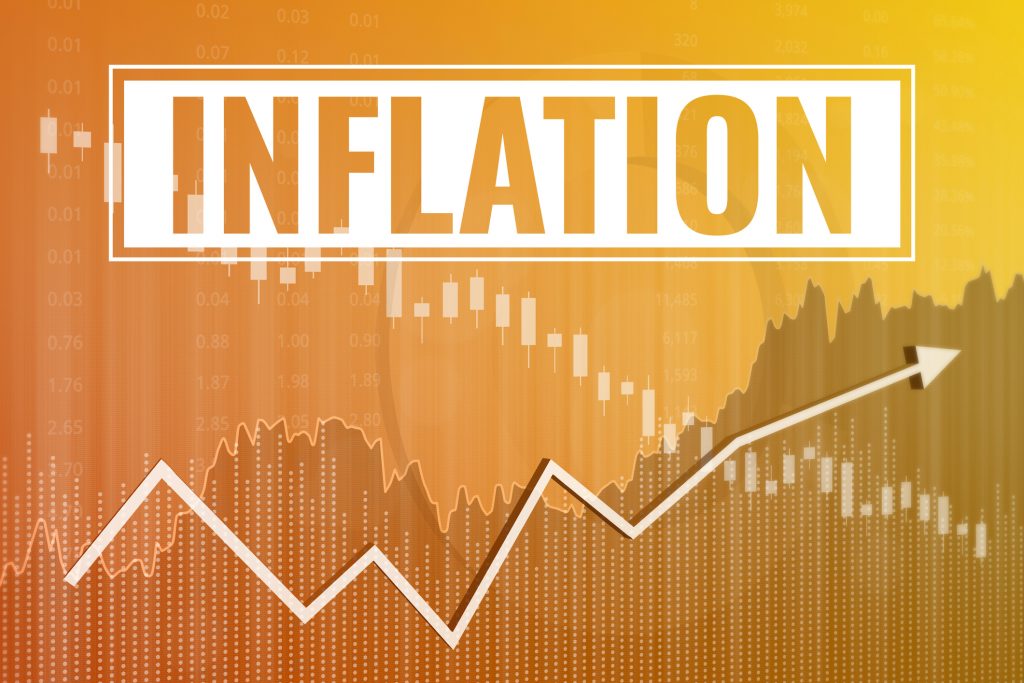
If your weekly grocery bill is noticeably higher or you can’t believe how expensive gas is, you’re not alone. Inflation is at 40-year highs,[1] and a recent poll found that 52% of Americans said the most important issue facing the country is inflation.[2] It’s significant that so many Americans recognized inflation as a major threat considering how unpredictable that market has been. Inflation presents unique risks, so it’s important to know how you’ll respond to them.
The Double Threat of Market Volatility and Inflation
Let’s not beat around the bush - sometimes, you’re better safe than sorry. With recent market volatility, riskier asset classes and sectors have seen large swings in value. For example, the NASDAQ Composite index, a tech-related stock index, recorded a 27% drop in value from January 3rd, 2022, to May 18th, 2022[3].
Over the years, you’ve worked hard to stay on track to your retirement goals. So, due to recent market volatility, you may be considering a more conservative investment approach to help protect what you’ve saved. However, during periods of high inflation, this can potentially present its own problems. For guidance on how to navigate the double threat of market volatility and inflation, talk to a financial advisor.
The Effects of Inflation – How Much Are You Left With?
There’s no telling how the market will perform in the future, which is why you may be considering more conservative investment strategies Let’s look at the potential risk of being overly conservative in inflationary periods.
In inflationary times, the income rates you receive from held assets may not measure up to the rising costs of living. For example, income from a 5-year Certificate Deposit (CD) purchased at a fixed rate a year ago would not stretch as far in the coming years at it did when initially purchased. This conservative investment could potentially leave a retiree with insufficient income to accommodate their retirement amidst rising costs of living. Retirees who are fortunate enough to have a pension may not see their payments keep up with inflation.
Think of it this way: If you expected to cover your living expenses with a consistent income amount, when the cost-of-living rises, that consistent amount will cover less of your living expenses.
[2] https://fivethirtyeight.com/features/we-asked-2000-americans-about-their-biggest-concern-the-resounding-answer-inflation/
[3]MSN Money, NASDAQ Composite Year-To-Date Chart, COMP 11,503.03 -481.50 -4.02% : NASDAQ – MSN Money
The commentary on this blog reflects the personal opinions, viewpoints, and analyses of BML Wealth Management’s employees providing such comments and should not be regarded as a description of advisory services provided by West Wealth Group, LLC. The views reflected in the commentary are subject to change at any time without notice. Nothing on this blog constitutes investment advice. Any mention of a particular security and related performance data is not a recommendation to buy or sell that security. Investing involves risk, including the potential loss of principal. No investment strategy can guarantee a profit or protect against loss in periods of declining values. Past performance is no guarantee of future returns.
Investment advisory services through West Wealth Group, LLC, an SEC Registered Investment Adviser. BML Wealth Management and West Wealth Group, LLC are affiliated entities. Insurance Services are offered through BML Wealth & Insurance Services, California Insurance License #0M15550.
We do not provide tax or legal advice, all individuals are encouraged to seek guidance from qualified professionals regarding their personal situation. Any references to protection benefits or steady and reliable income streams in this guide refer only to fixed insurance products. They do not refer, in any way, to securities or investment advisory products.






